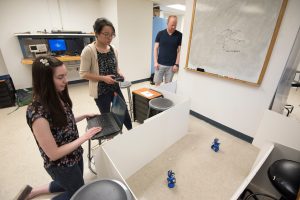Zachary J. Harris, Tyler Paine, Annie Mao, and Louis L. Whitcomb, Stable Null-Space Adaptive Parameter Identification of 6 Degree of Freedom Decoupled Plant and Actuator Models for Underactuated Vehicles: Theory and Experimental Evaluation, International Journal of Robotics Research, 2023;42(12):1070-1093. https://doi.org/10.1177/02783649231191184
Annie M. Mao, Joseph L. Moore, and Louis L. Whitcomb, Adaptive Identification of Second-Order Mechanical Systems with Nullspace Parameter Structure: Stability and Parameter Convergence, 2024 Conference on Decision and Control, December 2024, Milan, Italy. In Press.
Allan H. Elsberry, Jeremy J. Dawkins, Annie M. Mao, and Louis L. Whitcomb, Nullspace Adaptive Identification of Plant and Actuator Model Parameters for Underactuated Ground Vehicles: Theory and Experimental Evaluation. 2024 Modeling, Estimation and Control Conference, October 2024, Chicago, IL, USA. In Press.
James Hunt and Louis L. Whitcomb, A Hybrid Dynamical Model for Robotic Underwater Vehicles when Submerged or Surfaced: Approach and Preliminary Simulation Studies, 2024 IEEE International Conference on Robotics and Automation (ICRA), Yokohama, Japan. May 2024. https://doi.org/10.1109/ICRA57147.2024.10610798
Annie M. Mao, Joseph L. Moore, and Louis L. Whitcomb, Nullspace Adaptive Model-Based Trajectory-Tracking Control for a 6-DOF Underwater Vehicle with Unknown Plant and Actuator Parameters: Theory and Preliminary Simulation Evaluation, 2024 IEEE International Conference on Robotics and Automation (ICRA), May 2024, Yokohama, Japan. In https://doi.org/10.1109/ICRA57147.2024.10611318
Lanier Watkins, Denzel Hamilton, Tyler Young, Sebastian Zanlongo, Louis L. Whitcomb, Andrew R. Spielvogel, and Barbara Kobzik-Juul, The Roles of Autonomy and Assurance in the Future of Unmanned Aircraft Systems (UAS) in Low-Altitude Airspace Operations, IEEE Computer, 56(7):41-53, July, 2023, https://doi.ieeecomputersociety.org/10.1109/MC.2023.3242579
Will Pryor, Liam J. Wang, Arko Chatterjee, Balazs P. Vagvolgyi, Anton Deguet, Simon Leonard, Louis L. Whitcomb, and Peter Kazanzides, A Virtual Reality Planning Environment for High-Risk, High-Latency Teleoperation, 2023 IEEE International Conference on Robotics and Automation (ICRA), London, UK, pp. 11619-11625, https://doi.org/10.1109/ICRA48891.2023.10161029
Brendan P. McNelly, L. L. Whitcomb, Joseph P. Brusseau and Stephen S. Carr, Evaluating Integration of Autonomous Underwater Vehicles into Port Protection, OCEANS 2022, Hampton Roads, Hampton Roads, VA, USA, 2022, pp. 1-8, https://doi.org/10.1109/OCEANS47191.2022.9977239
Cora A. Dimmig*, J. Moore and Louis L. Whitcomb, “Development and Preliminary Evaluation of a RANSAC Algorithm for Dynamical Model Identification in the Presence of Unmodeled Dynamics,” 2022 American Control Conference (ACC), Atlanta, GA, USA, 2022, pp. 3929-3936, https://doi.org/10.23919/ACC53348.2022.9867353
Andrew R. Spielvogel, Abhimanyu S. Shah, and Louis L. Whitcomb, Online 3-Axis Magnetometer Hard-Iron and Soft-Iron Bias and Angular Velocity Sensor Bias Estimation Using Angular Velocity Sensors for Improved Dynamic Heading Accuracy, Field Robotics, May, 2022 · 2:1001–1027, https://fieldrobotics.net/Field_Robotics/Volume_2_files/Vol2_33.pdf
Peter Kazanzides, Balazs P. Vagvolgyi, Will Pryor, Anton Deguet, Simon Leonard, and Louis L. Whitcomb. Teleoperation and Visualization Interfaces for Remote Intervention in Space. Frontiers in Robotics and AI. 2021(8):747917, December 2021. https://doi.org/10.3389/frobt.2021.747917
Annie M. Mao and Louis L. Whitcomb, A Novel Quotient Space Approach to Stable Adaptive Model-Based Fault Detection and Isolation: Theory and Preliminary Simulation Evaluation, 2021 IEEE/RSJ International Conference on Intelligent Robots and Systems (IROS), pp. 7119-7126, October 2021. http://doi.org/10.1109/IROS51168.2021.9636026.
Tyler M. Paine and Louis L. Whitcomb, Uniform Complete Observability of Mass and Inertial Parameters in Adaptive Identification of Rigid Body Plant Dynamics, 2021 IEEE International Conference on Robotics and Automation (ICRA), pp. 52-58, May 2021. https://doi.org/10.1109/ICRA48506.2021.9561892.
Christopher J. McFarland and Louis L. Whitcomb, Stable Adaptive Identification of Fully-Coupled Second-Order 6-DOF Nonlinear Plant Models for Underwater Vehicles: Theory and Experimental Evaluation, International Journal of Adaptive Control and Signal Processing, 35(5):786-810, March, 2021. https://doi.org/10.1002/acs.3235
Laughlin D. L. Barker and Louis L. Whitcomb, Performance Analysis of Ice-Relative Upward-Looking Doppler Navigation of Underwater Vehicles Beneath Moving Sea Ice, Journal of Marine Science and Engineering, Special Issue on Control, Guidance, Coordination, and Localization of Autonomous Marine Vehicles, 9(2):174-, February, 2021, https://doi.org/10.3390/jmse9020174.
Zachary J. Harris and Louis L. Whitcomb. Cooperative Acoustic Navigation of Underwater Vehicles Without a DVL Utilizing a Dynamic Process Model: Theory and Field Evaluation, Journal of Field Robotics, 38(5):700-726, January 2021. https://doi.org/10.1002/rob.22008
Laughlin D. L. Barker, Michael V. Jakuba, Andrew D. Bowen, Christopher R. German, Ted Maksym, Larry Mayer, Antje Boetius, Pierre Dutrieux, and Louis. L. Whitcomb, “Scientific Challenges and Present Capabilities in Underwater Robotic Vehicle Design and Navigation for Oceanographic Exploration Under-Ice,” Remote Sensing, vol. 12, no. 16, p. 2588, Aug. 2020, https://doi.org/10.3390/rs12162588
Andrew. R. Spielvogel* and Louis L. Whitcomb, A Stable Adaptive Observer for Hard-Iron and Soft-Iron Bias Calibration and Compensation for Two-Axis Magnetometers: Theory and Experimental Evaluation, IEEE Robotics and Automation Letters, (5)2:1295-1302, April 2020, http:/dx.doi.org/10.1109/LRA.2020.2967308
Andrew. R. Spielvogel and L. L. Whitcomb (2020). Adaptive bias and attitude observer on the special orthogonal group for true-north gyrocompass systems: Theory and preliminary results. The International Journal of Robotics Research, 39(2–3), 321–338. Invited paper. https://doi.org/10.1177/0278364919881689
Giancarlo Troni and Louis L. Whitcomb. Field Sensor Bias Calibration with Angular-Rate Sensors: Theory and Experimental Evaluation with Application to Magnetometer Calibration, IEEE/ASME Transactions on Mechatronics. 24(4):1698-1710, August, 2019. http://dx.doi.org/10.1109/TMECH.2019.2920367
Zachary J. Harris and Louis L. Whitcomb. Preliminary Study of Cooperative Navigation of Underwater Vehicles without a DVL Utilizing Range and Range-Rate Observations, Invited Book Chapter, in Cooperative Localization and Navigation: Theory, Research and Practice (#K376186), Chao Gao and Guorong Zhao, Editors. CRC Press (Taylor & Francis Group), June 2019. https://doi.org/10.1201/9780429507229 Buy it here: https://www.amazon.com/Cooperative-Localization-Navigation-Research-Practice
Will Pryor**, Balazs P. Vagvolgyi, William J. Gallagher, Anton Deguet, Simon Leonard, Louis L. Whitcomb, and Peter Kazanzides, Experimental Evaluation of Teleoperation Interfaces for Cutting of Satellite Insulation, in 2019 IEEE International Conference on Robotics and Automation (ICRA), Montreal, Canada, 2019. https://doi.org/10.1109/ICRA.2019.8793968
Sri Kamal Kandala, Eleni Liapi, Louis L. Whitcomb, Anilchandra Attaluri & Robert Ivkov Temperature-controlled power modulation compensates for heterogeneous nanoparticle distributions: a computational optimization analysis for magnetic hyperthermia, in International Journal of Hyperthermia, 36:1, 115-129, 2019, DOI: https://doi.org/10.1080/02656736.2018.1538538
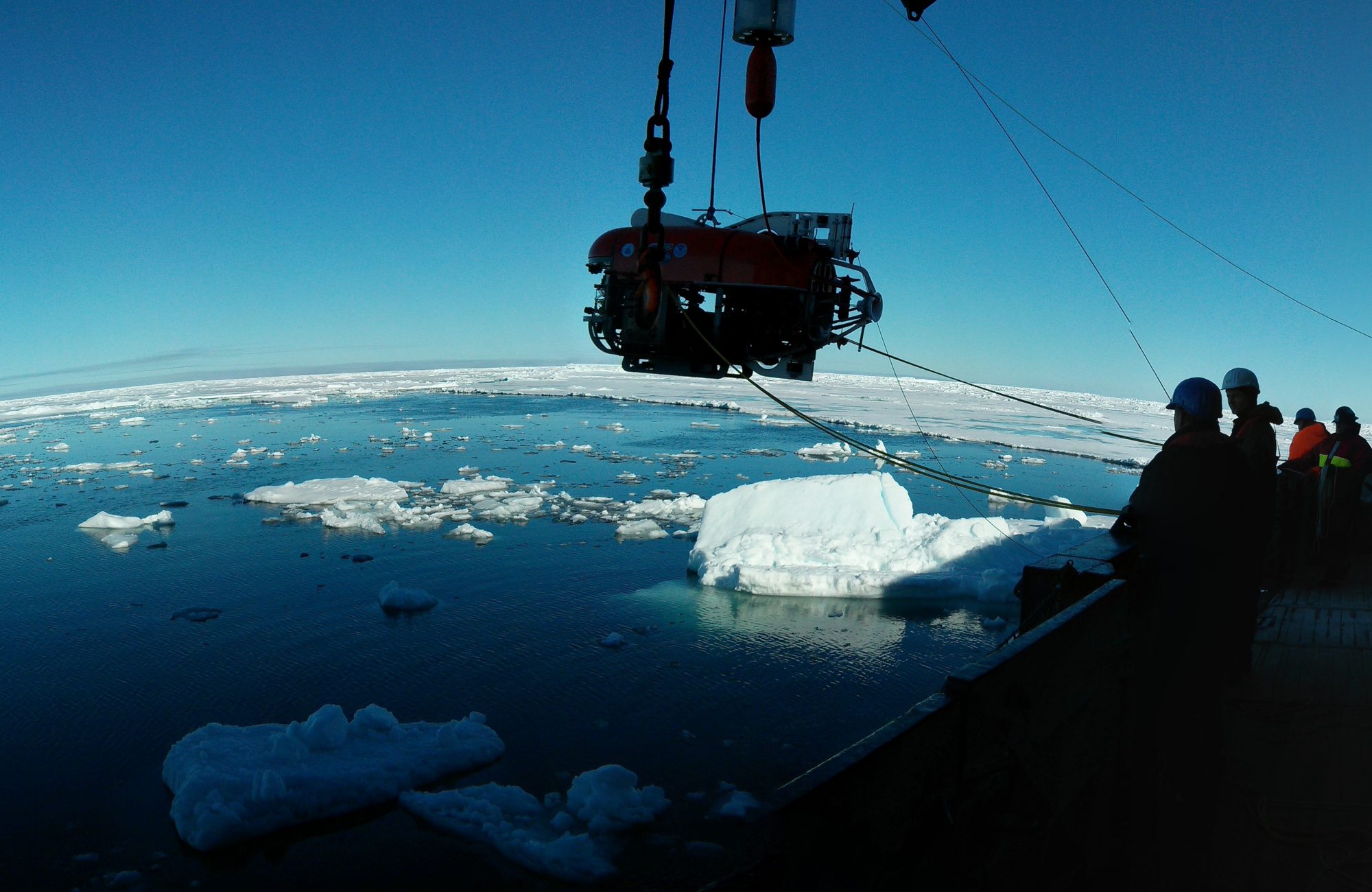
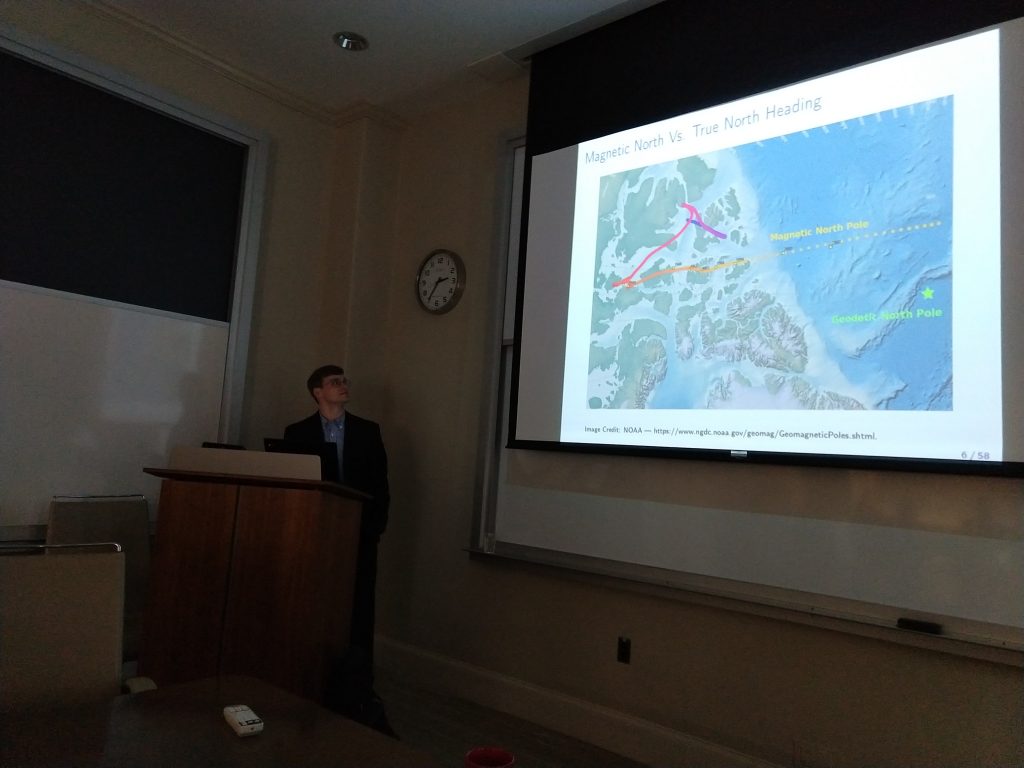
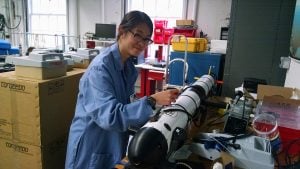

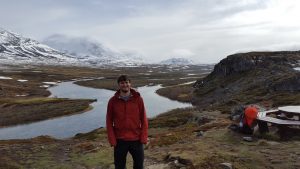
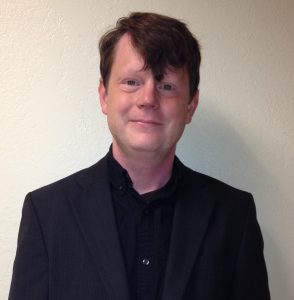
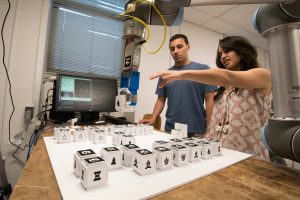 530.707 Robot Systems Programming will be offered again in spring 2018. Please see the 2017 course home page
530.707 Robot Systems Programming will be offered again in spring 2018. Please see the 2017 course home page 